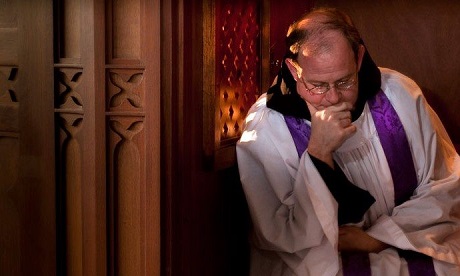Lawyers representing sexual abuse victims in the United Kingdom say sexual abuse crime reporting should be mandatory.
This would mean priests hearing confessions from abuse perpetrators would have to break the seal of the confessional.
The lawyers have told Britain’s Independent Inquiry into Child Sexual Abuse (IICSA) that failing to make reporting suspected abuse a crime has allowed clerics to evade responsibility.
Lawyer Richard Scorer told the IICSA that a mandatory reporting law would have changed the perpetrators’ behaviour.
At the opening of a three-week hearing into Benedictine schools’ phase of the Inquiry, Scorer said at Downside Abbey abuse was discovered but not reported.
Abusers were left free to abuse again and great harm was done to victims.
“The Catholic church purports to be a moral beacon for others around it – yet these clerical sex abuse cases profoundly undermine it … Why has the temptation to cover up abuse been particularly acute in organisations forming part of the Roman Catholic church?” Scorer asked.
Two Benedictine abbeys and their associated schools, Downside and Ampleforth are the focus of the current investigation phase.
Riel Karmy-Jones QC, counsel to the Inquiry, said past allegations and convictions at the two schools had exposed a wide range of misconduct.
These included excessive physical chastisement, sometimes apparently for sexual gratification; voyeuristic beatings where children had been made to strip and to bend over so as to expose their naked bottoms; grooming; fondling of genitalia; buggery and rape.
Another solicitor, David Enright, who represented former pupils in the Comboni phase of the Inquiry, said it was a problem that “matters revealed in Confession, including child abuse, cannot be used in governance.
“One can’t think of a more serious obstacle embedded in the law of the Catholic Church to achieving child protection.
“The Catholic Church is so opaque, so disparate, so full of separate bodies who are not subject to any authority that it is difficult to see how reform can be made to provide good governance and introduce acceptable standards of child protection.”
Enright pointed out there are over a million children attending Catholic-run educational institutions in the United Kingdom.
He gave an example of how the confessional seal works in favour of abusers.
He said a former abuser at a Comboni mission school was not punished.
Instead, he was moved elsewhere after complaints were made.
He then became a Scout commissioner in Uganda.
Like Scorer, Enright suggested removing the privileges of priestly confession would help change attitudes.
Implementing such a change would not be easy, as Canon law forbids disclosing anything penitents say.
The lawyers’ recommendations are similar to suggestions heard in August by Australia’s Royal Commission on Child Abuse.
Archbishop Denis Hart of Melbourne responded, saying he would go to jail rather than violate the confessional seal.
Source
